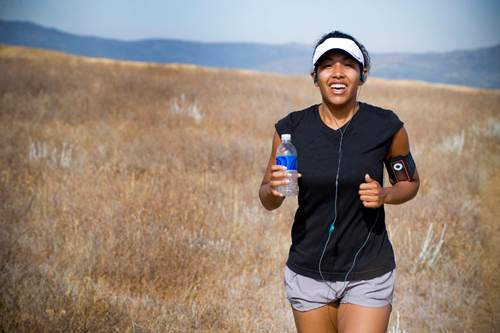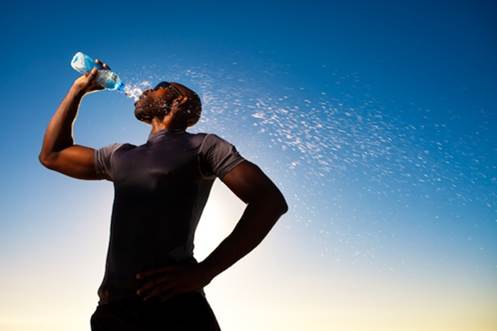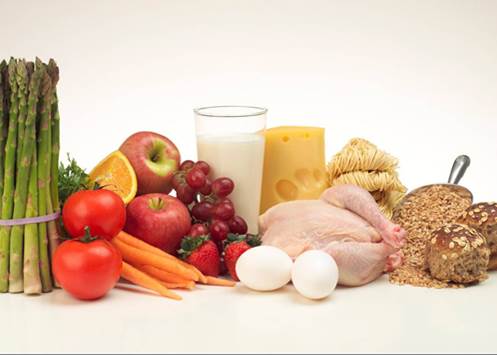A guide to how much and what to drink
during your marathon training runs
While it’s important to stay hydrated
during exercise, it’s impossible to create one-size-fits-all drinking
guidelines. Your weight, sweat rate and effort level, and the temperature, all
affect how much you should drink. But that doesn’t mean you should leave your
hydration plan to chance. These strategies can help ensure you drink the right
amount before, during and after every run.
Before your run

One
of the best way to limit dehydration during a run is to drink enough beforehand
One of the best way to limit dehydration
during a run is to drink enough beforehand. ‘Checking your urine pre-run is an
easy way to see if you’re hydrated,’ says Dr. Lewis Maharam, former medical
director of the Rock ‘n’ Roll race series. ‘If it’s the color of iced tea, you
need to drink more. If it’s a pale lemonade or straw color, you’re nicely
hydrated.’ With the exception of alcoholic drinks, which are dehydrating, all
beverages, including water, sports drinks, coffee, tea, juice and milk, can
help keep you hydrated throughout the day.
During your run
If you’re out for an 18-miler, drinking
mid-run is a no-brainer. But what if you’re going for an hour? Or doing intervals?
‘There have been a range of recommendations over the past two decades,’ says
Maharam. ‘The newest brings us back to basics: drink to your thirst.’ It’s
advice backed up by the International Marathon Medical Directors Association
and Dr. Tim Noakes, author of Waterlogged: The Serious Problem of
Overhydration in Endurance Sports. ‘Your thirst mechanism is exquisitely
tuned to your body,’ says Noakes. ‘If you drink when you’re thirsty, you’ll
keep your body adequately hydrated.’

If
you drink when you’re thirsty, you’ll keep your body adequately hydrated
The American College of Sports Medicine
recommends drinking enough so you don’t lose more than three per cent of your
weight through sweat lose more than that and your performance starts to falter.
One way to figure out how much lose during an hour of running is to weigh
yourself naked pre and post run (without drinking anything during the run). The
number of kilograms you lose equates to your sweat loss in liters. So, if you
lost a kilo, you sweated a liter of fluid.
On runs longer than 60 minutes, sports
drinks are a good idea. They have carbs for energy, and electrolytes such as
sodium and potassium, which are lost through sweat but are integral to nerve
and muscle function.
After your run

After
especially long or hard runs, you also need protein to help your muscles heal
When you come in from a run, drink until
you’re satisfied. If your face has white salt streaks on it post-run, it means
you’ve lost quite a bit of sodium, so it’s best to have a sports drink, water
with an electrolyte tablet in it, or water along with food that contains
sodium. After especially long or hard runs, you also need protein to help your
muscles heal. That’s why recovery drinks are ideal – they provide protein and
fluid to help you rehydrate. ‘Chocolate milk is a great choice,’ says Maharam.
‘The carbs to protein ration is perfect is recovery.’